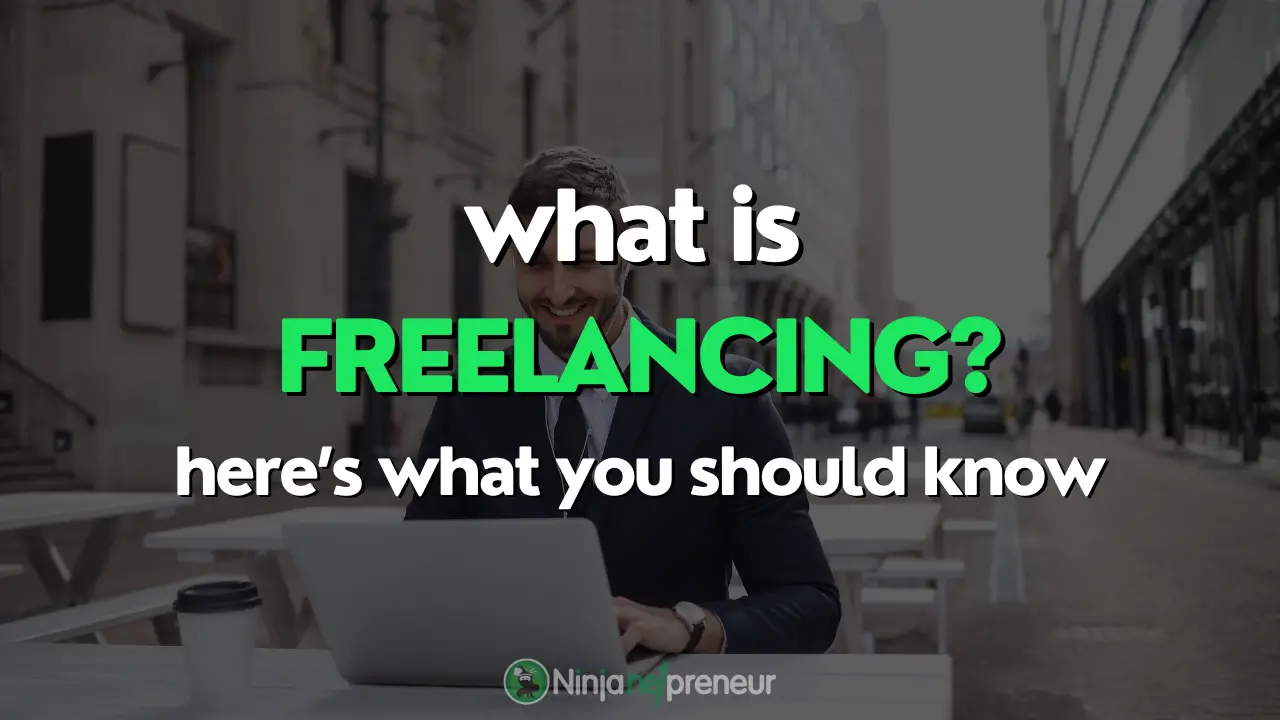So you’ve heard the word freelancing and wondered what it means? Well, you are in the right place, as you’ll learn about the different things involved in freelance life.
First, let’s break down the term freelancing.
What is Freelancing?
Freelancing is a form of self-employment where the one freelancing (freelancer) can work for different individuals, companies, or organizations on a per task, project, or contract basis. One of the perks of freelancing is not having to commit to full-time employment or a single employer.
Unlike traditional jobs where employees get certain benefits such as vacation pay, health insurance, sick pay, pension, and other bonuses from employers, a freelancer has to take care of these and other costs.
Now let’s consider the job description of a freelancer.
What Does A Freelancer Do?
A freelancer would typically:
- Reach out to potential clients, bid on job sites, or respond to client’s messages. Platforms that connect freelancers with clients are, but are not limited to Fiverr, Upwork, and LinkedIn, to mention a few.
- Negotiate with buyers, discussing the terms and unique needs of a project.
- Start working on and complete a project once an agreement has been reached between the two parties.
- Deliver, and make revisions where necessary.
A freelancer would normally do a combination of the above tasks on a daily basis.
You might wonder what services individual clients and companies are looking to pay someone to do. These range from simple tasks like entering data into a spreadsheet file (data entry) to big projects like building an app using a programming language.
And that leads to the next point.
What Skills Do I Need to Become A Freelancer?
You’ve probably heard the expression give people what they want. The same also applies in the freelance world.
Put simply, sell what people want to pay for.
Here are some of the skills you can learn, master, and get individuals and companies to pay you for. Mastery could take months or years, depending on different factors.
- Graphic design.
- Video production and editing.
- Writing.
- Programming.
- Data analysis.
- Social media management.
- Software engineering.
Tip: You don’t have to be a master in any of these skills before finding work. Be good enough at the start, don’t stop learning and improving; mastery can come later!
Can You Be a Freelancer And Have Another Job?
The simple answer is yes. You can simultaneously earn freelance income and have full-time employment.
Schedule your time or make adjustments to your existing schedule so as to work on your side gigs, perhaps on weekends, or a few hours every day outside your 9 to 5 hours.
Remember, we don’t recommend committing time theft in the workplace by doing personal projects on company time.
You’ll be surprised by how much you can do when you structure and organize your life.
Conclusion
At this point, you probably have a solid idea about “what is freelancing.” Want to be part of the freelance life? Here are 5 platforms where you can get freelance jobs.
Don’t forget to let us know what you think in the comments.

